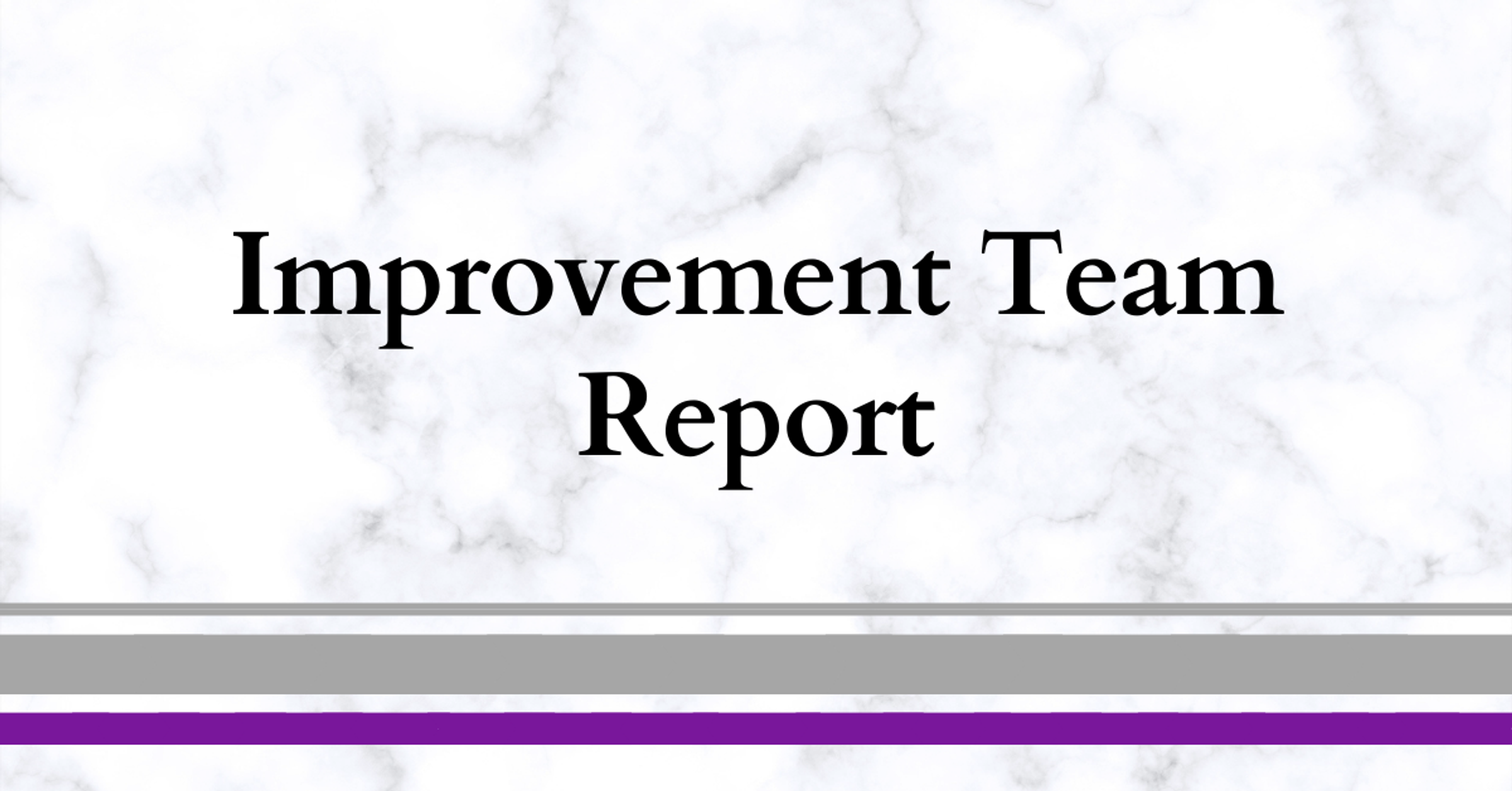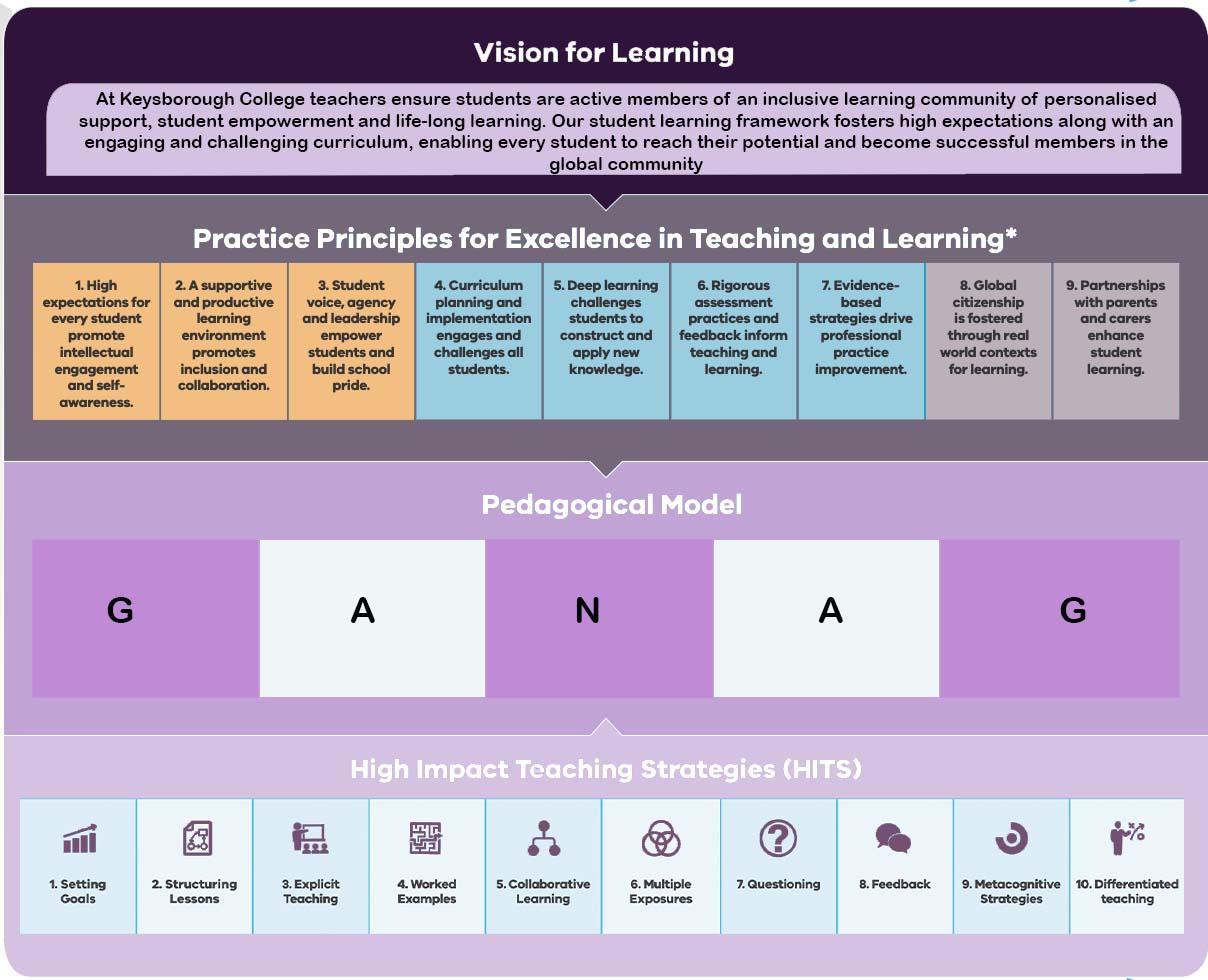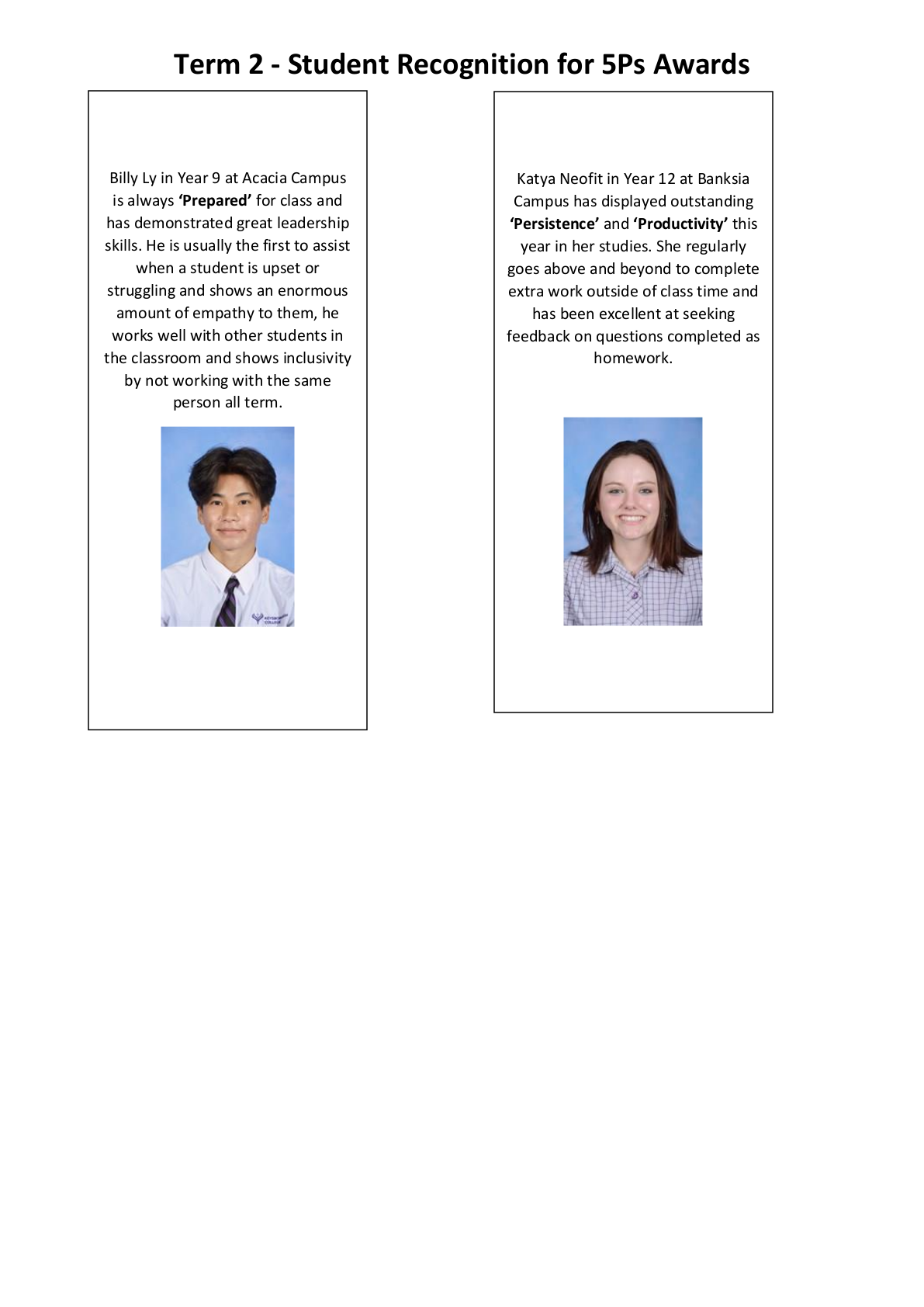Improvement Team Report

Curriculum, Assessment & Reporting Improvement Team
During Term 2 the Curriculum, Assessment & Reporting Improvement Team has worked steadily to oversee a number of college tasks to support staff, students and the Keysborough Secondary community to engage with the assessment & reporting processes.
2023 is set to be a year of reform in the Senior school with many exciting Curriculum and Pathway changes taking place. These changes will bring about opportunities for our students to access a variety of new VET subjects onsite which will lead to future career opportunities.
Keysborough College is proud to introduce these VET studies in 2023:
- Cert 3 Business studies
- Cert 3 Chinese language
- Cert 3 Screen & Media studies
- Cert 3 Visual Art
With the college increasing the number of VET courses offered onsite, we can improve flexibility and minimise disruptions to the students in both VCE and VCE-VM pathways by allowing them to study a VET course as part of their educational program here at Keysborough College.
Semester 1 reports will be available through your child’s Compass portal on Friday 24th June. These reports give students, parents and guardians a valuable insight into the progress your child is achieving against the Victorian Curriculum F-10 achievement standards. Please take some time to go through these reports with your child, celebrate their successes and discuss strategies they could adopt in Term 3 to assist them to improve.
If you require assistance in accessing these reports or would like more advice on interpreting your child’s report or strategies for supporting your child, please contact the relevant TTL for the year level or the Assistant Principal.
Pedagogy Improvement Team Report
The team continues to work on updating the Keysborough Learning Framework, specifically focussing on the pedagogical model. Work completed throughout semester 1, in consultation with teaching staff, has resulted in the update of the Vision for Learning, and the adoption of the 9 Practice Principles and the High Impact Teaching Strategies from the Victorian Teaching and Learning Model.
The next steps from the team are to finalise the draft pedagogical model (what effective teachers do in class) to take to staff for feedback in term 3.
Pathways and Community Report
An update from the Pathways and Community Improvement Team. The introduction of the VCE-Vocational Major and Victorian Pathways Certificates is continuing. We have established a number of working parties to develop the required curriculum to begin the roll out of Unit 1&2 subjects for VCE-Literacy, VCE-Numeracy, VCE-Work Related Skills and VCE-Personal Development in 2023. The roll out will be over two years with 2022 Year 10 students being able to choose a VCE-VM pathway next year. Students undertaking a VCAL program in Year 11 this year will be able to continue that certificate into year 12 before the VCE-VM introduces Unit 3&4 units in 2024.
Also we continue to work towards course counselling in Term 3 were students make decisions about their subject choices for next year. Our Improvement Team is leading a transition program for Year 9 students who will undertake a transition program to Year 10 in early Term 3. In this transition program they will learn about the different subject offerings for Year 10 and what life is like in the Senior School.
Student Engagement & Wellbeing Improvement Team
The Student Engagement & Wellbeing Improvement Team have been looking at curriculum with a focus on engagement, wellbeing and mental health. Education settings are a significant place where mental health and wellbeing can be supported and promoted. The Victorian government is investing funds over the next four years to support this area, and one of the ways they have addressed this is by developing a Mental Health Menu. This is a list of evidence-based programs and initiatives that schools can access to support students’ mental health and wellbeing. The Menu has programs that address three ‘tiers’ of intervention.
Tier 1: Positive mental health promotion – Universal interventions to help schools to create a positive, inclusive and supporting school climate, building the preconditions for optimal student learning, development and wellbeing.
Tier 2: Early intervention / cohort specific – Early interventions and those for specific cohorts of students complement universal interventions and provide essential additional support for students with specific needs or vulnerabilities.
Tier 3: Targeted support – Interventions for individuals or small groups of students requiring intensive tailored mental health support to engage positively in education.
The Student Engagement & Wellbeing Improvement Team are looking specifically at Tier 1 programs that can be implemented in classrooms. The College has already introduced programs that address engagement and wellbeing such as the Resilience Program and Respectful Relationships, but we are currently reviewing programs and consulting about extending existing programs and implementing further initiatives to improve student engagement, wellbeing and learning outcomes.
Robyn Hughes
Intervention Improvement Team Report
Professional Learning
During the term, the specialist team has run focus groups with teachers to gather insights around current approaches to goal setting with students. The student voice leader, and student voice captains are also currently conducting focus groups with students. This is to gauge their views on how goal setting can be utilised to engage students to become more confident self-regulated learners. The leadership team will be developing professional learning from the feedback to present to staff throughout term three. This will be supported with opportunities for all staff to visit classrooms of the leadership and specialist team, to see effective strategies modelled in a variety of different learning areas.
Our new VIT staff have completed their semester induction program to the college and are now developing their inquiry cycles with their VIT specialist mentors, to prepare for full registration.
Alongside the college coaching program and building upon the college's personalised approach to professional learning, the Vit team are trialling the Quality Teaching Round lesson observation framework with VIT staff, to scaffold their inquiry to refine its alignment with the AITSL teaching standards.
STEM
Keysborough staff and 3 year 7 students visited Keysborough and Heather Hill primary school to run a STEM outreach incursion program. This program gives schools the opportunity to learn science and use technology they may not have at their schools. The students from these primary schools learnt about engineering and design and built their own catapult. The outreach program was highly successful, and the primary schools were very pleased by how the activities ran. These programs are continuing to be expanded, with plans for an e- sports day in schools during term three. These primary schools will be invited to visit our Banksia and Acacia campus early next term to participate in a half day STEM program.
STEM afternoon will be running on Thursday of next week (23rd of June) in which parents are invited with their child to attend a two-hour session involving various STEM related activities to showcase our Acacia campus. A similar afternoon, with a focus on technology will be held at our Banksia campus early term 3.
High Ability Program
In term three, there are 17 year 7’s and 17 year 8’s who will join the 10-week VHAP extension program from across the college. It is the biggest High Ability Cohort we have had since the program began. The program will offer online extended learning and enrichment in English and Mathematics.
Literacy
We have engaged a new literacy consultant to continue our work with embedding Disciplinary literacy throughout our college learning areas. They will join the college one day a fortnight, commencing in term three. The junior literacy programs continue to evolve and develop as our student needs change, with staff working towards improved outcomes through utilising a more structured and differentiated approach to an intensive reading lesson.
Corrective Reading is a program that has been added to provide this structure alongside our traditional comprehension approach, to build student’s ability to blend phonics to read with greater fluency. These program developments are in line with The Departments’ Literacy and numeracy strategy to achieve excellence and equity for all students.
Erin Rabot


